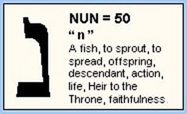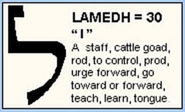Transformed
I'm going to finish this series on Luke's Advent with the account of the shepherds and three thoughts:1. Shepherds were the "ragamuffins" (In South Africa we'd call them "skollies"). They were rough diamonds, reputed to have dishonest tongues, long fingers and coarse hearts.
And yet it is to these rough shepherds that the angels bring the announcement of Jesus birth! From the very outset it is clear that Jesus came for everyone. They say that Santa only comes to the kids that have been "nice" and not to those who have been "naughty". Jesus makes no such distinction: He comes to all:
- To barren Zechariah and Elizabeth via John
- To young working class couples like Joseph and Mary
- To shepherds in spite of their dodgy reputation
- And to sages from pagan countries and distant lands.
- To old Simeon and Anna in the temple forgotten by society.
As a fellow "naughty" and "ragamuffin", I am so grateful that I don't believe in Santa, but Jesus.
2. Look at the message of the Angel:
- "Don't be afraid" (not in those tough times and not now in these Corona Virus Times)
- "I bring Good News of Great Joy" (And even some 2020 years later it remains Good News that God stepped into our broken world so that we are not alone.)
- "In the town of David a Saviour has been born to you: He is Christ the Lord" (He may be in our world - but He's God-with-us and able to save us.)
- The sign of a "baby wrapped in cloths lying in a manger". (He's already experiencing the brokenness of the world and He can make it holy.)
- "Glory to God and Peace on Earth" (The only fitting response is worship and the outcome will be peace - because God has shown us His favour.)
3. The shepherds were transformed by their encounter. I can just imagine the emotion in the face of a burly shepherd cradling Jesus and touching a soft cheek with a calloused finger. They rush around the town waking everyone up, and the people aren't irritated or mistrustful - they are amazed at what has happened to the shepherds.
May we also be transformed as we reconsider Jesus' coming into our world!
| And there were shepherds living out in the fields nearby, keeping watch over their flocks at night. An angel of the Lord appeared to them, and the glory of the Lord shone around them, and they were terrified. But the angel said to them, "Do not be afraid. I bring you good news of great joy that will be for all the people. Today in the town of David a Savior has been born to you; he is Christ the Lord. This will be a sign to you: You will find a baby wrapped in cloths and lying in a manger." Suddenly a great company of the heavenly host appeared with the angel, praising God and saying,"Glory to God in the highest, When the angels had left them and gone into heaven, the shepherds said to one another, "Let's go to Bethlehem and see this thing that has happened, which the Lord has told us about." So they hurried off and found Mary and Joseph, and the baby, who was lying in the manger. When they had seen him, they spread the word concerning what had been told them about this child, and all who heard it were amazed at what the shepherds said to them. (Luke2:8-18) |
This brings our Advent Series to an end... I hope it has been a blessing to you.
I want to wish you a blessed Christmas and New Year. We celebrate in tough circumstances, but we have an opportunity to dig deeper and celebrate on principle instead of just because it is a holiday. I pray that you'll have the faith, hope and love to make the best of the circumstances and let your light shine!
With much love,
GodBless,
Theo
(EmmDevs will re-start in the middle of January...)















 The letter "Tsadhe" has a wide range of connotations. It's associated with a fish-hook and all the thoughts that go with a lure: To pull or draw in, something inescapable or desirable. As such it also represents trouble and hunting. On a completely different tack it can also imply righteousness.
The letter "Tsadhe" has a wide range of connotations. It's associated with a fish-hook and all the thoughts that go with a lure: To pull or draw in, something inescapable or desirable. As such it also represents trouble and hunting. On a completely different tack it can also imply righteousness. 






